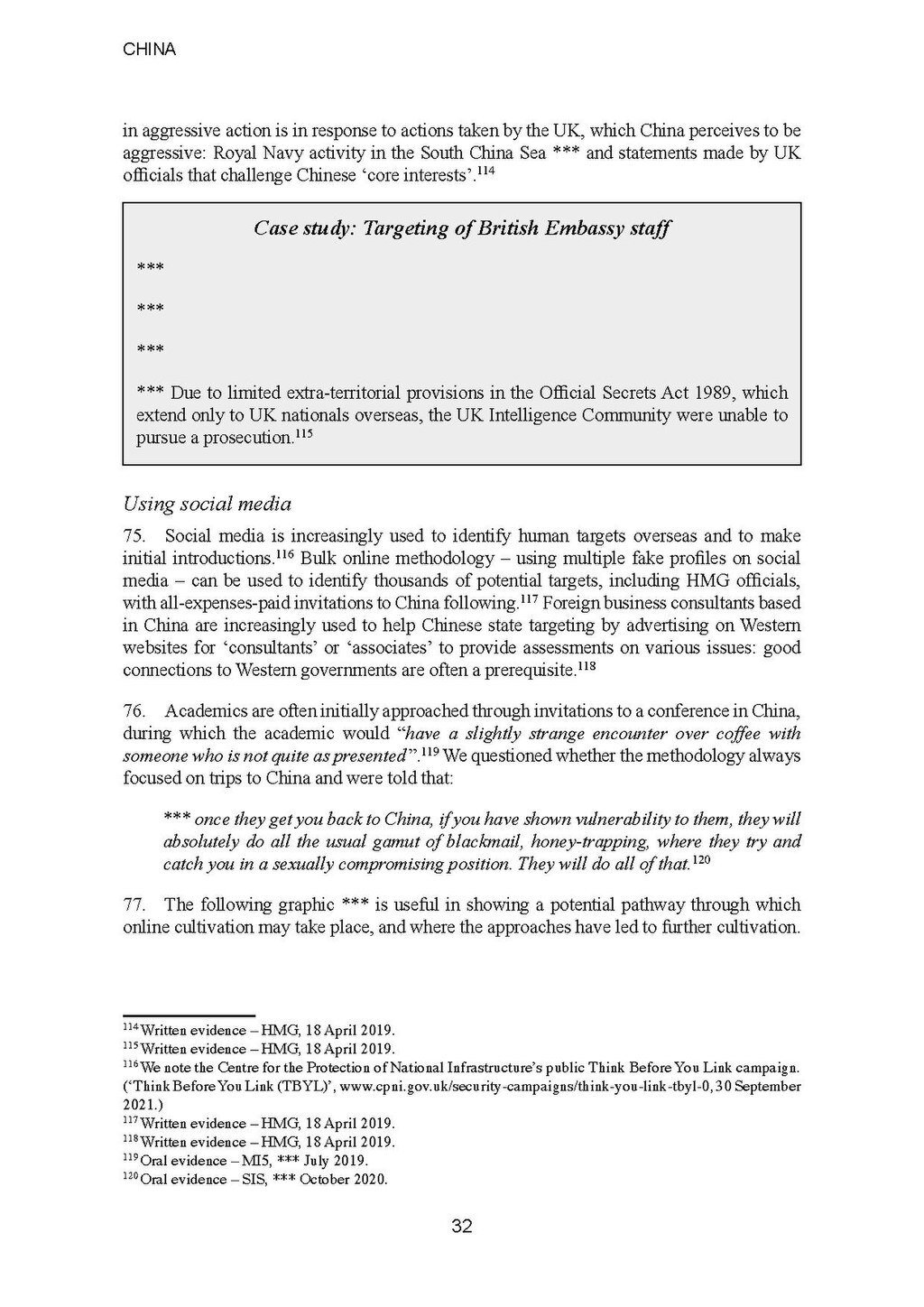CHINA
- in aggressive action is in response to actions taken by the UK, which China perceives to be aggressive: Royal Navy activity in the South China Sea *** and statements made by UK officials that challenge Chinese 'core interests'.[1]
Case study: Targeting of British Embassy staff
***
***
***
*** Due to limited extra-territorial provisions in the Official Secrets Act 1989, which extend only to UK nationals overseas, the UK Intelligence Community were unable to pursue a prosecution.[2]
- Social media is increasingly used to identify human targets overseas and to make initial introductions.[3] Bulk online methodology—using multiple fake profiles on social media—can be used to identify thousands of potential targets, including HMG officials, with all-expenses-paid invitations to China following.[4] Foreign business consultants based in China are increasingly used to help Chinese state targeting by advertising on Western websites for 'consultants' or 'associates' to provide assessments on various issues: good connections to Western governments are often a prerequisite.[5]
- Academics are often initially approached through invitations to a conference in China, during which the academic would "have a slightly strange encounter over coffee with someone who is not quite as presented".[6] We questioned whether the methodology always focused on trips to China and were told that:
*** once they get you back to China, if you have shown vulnerability to them, they will absolutely do all the usual gamut of blackmail, honey-trapping, where they try and catch you in a sexually compromising position. They will do all of that.[7]
- The following graphic *** is useful in showing a potential pathway through which online cultivation may take place, and where the approaches have led to further cultivation.
- ↑ Written evidence—HMG, 18 April 2019.
- ↑ Written evidence—HMG, 18 April 2019.
- ↑ We note the Centre for the Protection of National Infrastructure's public Think Before You Link campaign. ('Think Before You Link (TBYL)', www.cpni.gov.uk/security-campaigns/think-you-link-tby1-0, 30 September 2021.)
- ↑ Written evidence—HMG, 18 April 2019.
- ↑ Written evidence—HMG, 18 April 2019.
- ↑ Oral evidence—MI5, *** July 2019.
- ↑ Oral evidence—SIS, *** October 2020.
32
